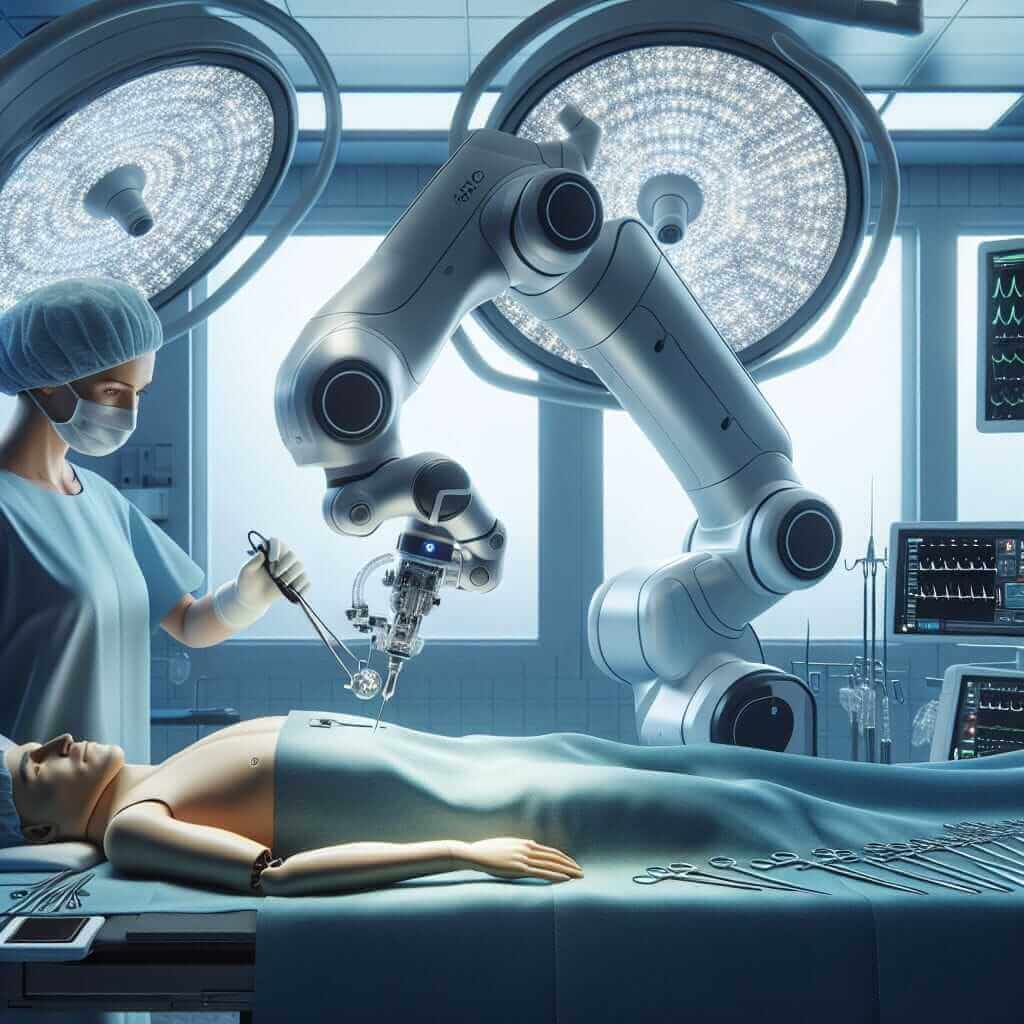“The role of technology in healthcare advancements” is a common IELTS Writing Task 2 topic, particularly in the realm of health and social progress. This theme explores the multifaceted ways technology revolutionizes medical practices, enhances patient care, and reshapes the future of healthcare.
Below, we’ll delve into potential essay questions and craft a sample band 8 answer to illustrate how to effectively address this topic.
Potential IELTS Essay Questions
Here are a few IELTS Writing Task 2 questions you might encounter related to technology in healthcare:
- To what extent do you agree or disagree that technology has had a positive impact on healthcare?
- Some people believe that the increasing use of technology in healthcare is dehumanizing. Others argue that it is essential for improving patient care. Discuss both views and give your own opinion.
- In the future, technology will completely replace the need for doctors. Do you agree or disagree?
Sample Essay: Analyzing the Impact of Technology in Healthcare
Let’s choose the first question to illustrate a comprehensive response:
To what extent do you agree or disagree that technology has had a positive impact on healthcare?
Essay Analysis
- Type: Opinion essay (Agree/Disagree)
- Key terms: “technology,” “healthcare,” “positive impact.”
- Approach: It’s best to adopt a balanced approach, acknowledging both the positive and potentially negative aspects of technology’s role in healthcare.
Model Essay
It is undeniable that technology has revolutionized countless aspects of modern life, with healthcare being a prime example. While some argue that technological advancements in this sector have drawbacks, I firmly believe that the overall impact has been overwhelmingly positive, leading to more accurate diagnoses, effective treatments, and improved patient outcomes.
One of the most significant contributions of technology is its role in enhancing diagnostic accuracy. Sophisticated imaging techniques, such as MRI and CT scans, provide doctors with unprecedented views of the human body, enabling them to identify anomalies and diseases with greater precision. This, in turn, allows for earlier interventions and increases the likelihood of successful treatment. For instance, the early detection of cancerous tumors through advanced imaging can be life-saving, as treatment is often more effective in the initial stages.
Furthermore, technology has been instrumental in developing minimally invasive surgical procedures. Robotic surgery, for example, allows surgeons to operate with unparalleled accuracy and control, resulting in smaller incisions, reduced blood loss, and faster recovery times. This not only benefits patients by minimizing discomfort and scarring but also reduces the strain on healthcare systems by shortening hospital stays.

However, it is important to acknowledge that the integration of technology in healthcare is not without its challenges. Concerns have been raised about the potential for data breaches, the ethical implications of artificial intelligence in medical decision-making, and the widening gap in healthcare access between those who can and cannot afford these advancements.
In conclusion, while acknowledging the potential drawbacks, I firmly believe that the benefits of technology in healthcare far outweigh the risks. The ability to diagnose diseases earlier, provide more effective treatments, and improve patient experiences makes technology an indispensable tool in modern medicine. As technology continues to evolve, it holds the promise of even greater advancements in healthcare, ultimately contributing to a healthier and more equitable world.
Word Count: 325 words
Writing Tips for This Topic
- Use specific examples: When discussing technological advancements, provide concrete examples like telemedicine, AI-powered diagnostics, or wearable health trackers to strengthen your points.
- Address both sides: Even if you agree that technology has a positive impact, acknowledge potential drawbacks to demonstrate a balanced perspective.
- Use appropriate vocabulary: Familiarize yourself with relevant vocabulary such as “telemedicine,” “robotic surgery,” “artificial intelligence,” “big data,” and “electronic health records.”
Important Vocabulary
- Sophisticated (adjective) /səˈfɪs.tɪ.keɪ.tɪd/: Highly developed and complex.
- Anomaly (noun) /əˈnɒm.ə.li/: Something that deviates from what is standard, normal, or expected.
- Intervention (noun) /ˌɪn.təˈven.ʃən/: The act of intervening in a situation to alter its course or outcome.
- Minimally invasive (adjective) /ˈmɪn.ɪ.məl.i ɪnˈveɪ.sɪv/: (Of medical procedures) performed with minimal cutting or intrusion into the body.
- Unparalleled (adjective) /ʌnˈpær.ə.leld/: Having no equal; unmatched.
- Integration (noun) /ˌɪn.tɪˈɡreɪ.ʃən/: The process of combining two or more things to form a whole.
- Ethical (adjective) /ˈeθ.ɪ.kəl/: Relating to moral principles or the branch of knowledge dealing with these.
- Artificial intelligence (noun) /ˌɑː.tɪˈfɪʃ.əl ɪnˈtel.ɪ.dʒəns/: The theory and development of computer systems able to perform tasks that normally require human intelligence.
- Data breach (noun) /ˈdeɪ.tə briːtʃ/: An incident in which sensitive, protected, or confidential data is copied, transmitted, viewed, stolen, or used by an individual unauthorized to do so.
Conclusion
Mastering IELTS Writing Task 2 requires a blend of vocabulary, grammar, and analytical skills. When approaching topics like “The role of technology in healthcare advancements,” ensure you address all aspects of the question, provide clear examples, and utilize relevant vocabulary to achieve a band 8 score. Continue practicing with other potential questions related to this theme to build your confidence and excel in your IELTS exam.